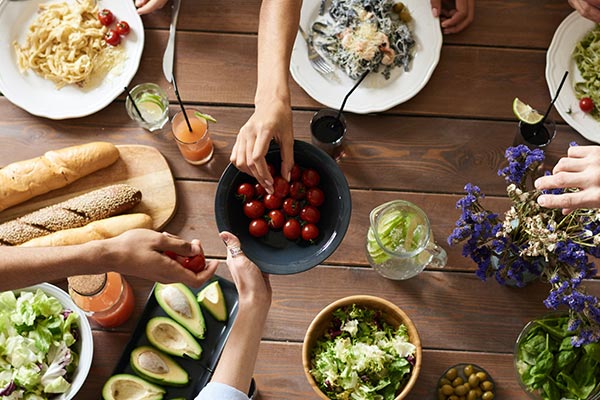At 18 months old, a child starts to understand that people around them have feelings just like them. It’s the perfect time to start teaching your child that their behavior has consequences. Of course, if you have ever had a toddler in the house, you’ll know that it isn’t as easy as it sounds.
Basic Manners and How to Teach Them
Greetings
This is one of the first things our young ones learn, even if it’s just a wave. Teach your toddler to acknowledge people by saying “hello” and “goodbye.” You can start to reinforce more phrases like “good morning” and “good night” as their vocabulary grows.

Please and Thank You
Once you start teaching your child polite phrases, repeat the words often. Remind other members of your family to reinforce the words, and if you notice that your child forgot to say please, remind them by asking, “What do we say?”
Table Manners
Have your child sit at a table to eat. By the age of three, they should be able to sit down for a more extended period. Don’t allow them to pick up food and walk around with it. Ask them to finish their meals before getting up. You can enforce it with a reward. A three-year-old child can start to use utensils and wipe their mouths after eating.
Sharing and Waiting
Toddlers have a hard time sharing because, since the day they are born, they are often the center of attention. By two years old, a child can learn the skill of sharing and taking turns. It’s one of the most challenging social skills to teach, but it’s also one of the most important. Encourage your child to share their toys with you, and then it will be easier once they are around another toddler of a similar age.
Saying Sorry
As adults, we know it’s hard to admit when we’re wrong. It’s the same for children. That’s why we should start teaching it at a young age. If your child grabs a toy from his or her friend, have them give it back and apologize. It might not go smoothly at first, but it will get better if you keep enforcing it.
Parenting Tips
Make a Habit of Polite Behavior
Teaching manners should become a daily habit for young children and not just something they are reminded of before some special event. Try to implement manners every day and in every situation. You don’t have to punish your child every time they forget to say “thank you,” but you should try to encourage them to do it often.
Polite Behavior is Vital for Social Development
If your child doesn’t know how to talk with others respectfully, they might have a hard time making friends and doing well. Manners aren’t only about saying “please” and “thank you” — it’s also about sharing and taking turns and speaking kindly. If your child isn’t conscious of these social cues, they might have difficulty getting along with others at school or on the playground.
Learning Manners Won’t Happen Overnight
Rome wasn’t built in a day, and your two-year-old won’t remember everything you teach them right away. Take things slowly by focusing on one social skill at a time. Start with something as small as saying “thank you,” and once you see your little one remembering it, introduce a new idea. Remember to praise your child often for their good behavior.
The Apple Doesn’t Fall Far from the Tree
Sometimes we see ourselves in our children, and that is because they observe our every move. Therefore, it is essential that you use polite language around them and say “please” when you speak (even if it’s just asking your partner to take out the trash, for example). Keep in mind that expressing anger in the wrong way is rude behavior, so you can’t expect your child to be well-mannered if they hear you yelling at someone.
Be Consistent
You should practice and reinforce good manners every day. Make sure that all adults who are around your child are implementing these lessons, too. Talk to your child’s teacher, babysitter, and grandparents to make them aware that you are encouraging polite behavior. Also, remind them not to scold your child if they forget to say “please” or “thank you.” Keep the enforcement positive.
Things to Avoid
We mentioned that you should not scold your child when they forget to be polite. You don’t want your child to be scared that they will fail to say the right things, and you don’t want them to be afraid of talking to adults or asking for help when they need it.
Rewarding your child for good behavior is a good way to help them remember to use good manners. You don’t have to praise them for their behavior every time, because they might feel like they only need to pull out those manners when they are around you.
Try to have patience with your toddler, and don’t give up. Don’t stop enforcing manners, even if it is hard. Remember that toddlers often don’t deal well with change. And don’t forget that there will be days that your child is sick or not in a great mood.
Also, you don’t want to force your child to hug and kiss relatives. We must respect our toddler’s personal space. It can become stressful for them, and they might want to hide away when visitors come over.
Conclusion
By teaching your children manners at an early age, you teach them social skills that will play a vital role in their development. As a parent, we can’t control every aspect of our children’s lives. However, we can teach them to be respectful, share, and show empathy towards others. Don’t underestimate the power of “please” and “thank you.”












